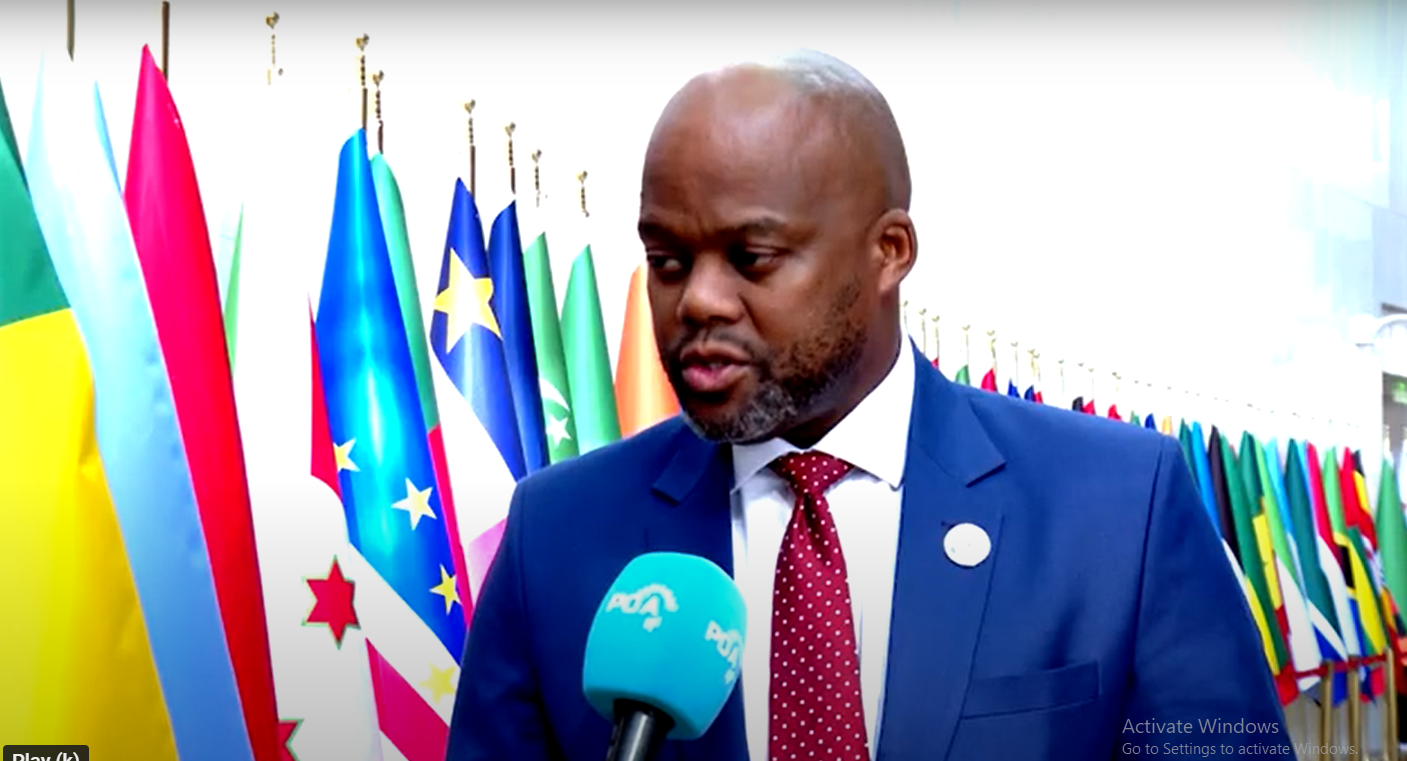AfCFTA Secretary-General Urges African Nations to Accelerate Implementation of Established Rules - ENA English
AfCFTA Secretary-General Urges African Nations to Accelerate Implementation of Established Rules

Addis Ababa, February 18, 2025 (ENA) --- AfCFTA Secretariat Secretary-General Wamkele Mene stressed on urged need of African countries to accelerate the implementation of agreed-upon rules to unlock markets and attract investment, particularly in the face of rising global trade protectionism.
Speaking to ENA, the Secretary-General stated that progress has been made in the implementation of African Continental Free Trade Area (AfCFTA) since the establishment of the Secretariat in Addis Ababa in 2020.
Noting that 48 countries deposited their instruments of ratification, the Secretary-General said that trade has already been underway among 19 countries under AfCFTA rules.
Mene appreciated the growing participation of the private sector and the completion of all necessary legal protocols of AfCFTA required by heads of state.
“We are very happy with the progress we've made. We've concluded all of the protocols that were required by the leaders. From a legal foundation point of view, we have concluded all of the necessary legal protocols. We've made good progress. We've come a long way, but we have a long way to go,” Mene said.
Despite the progress, Mene noted “the big challenge is the cost of infrastructure that supports trade. The deficit is estimated to be 150 billion dollars that constrains our ability to trade in larger volumes. Then, this poses a challenge to the cost of interconnectivity and lack of movement of persons around the continent. These are challenges that are external to the trade agreement, but they have an impact on the work that we do,” he pointed out.
He added “However, I am optimistic that by working with African Development Bank, Afri-Exim Bank and other development finance institutions we will continue to make progress in this regard.”
“We need to consolidate the rules that we've negotiated, the rules that open markets, and the rules that open markets for goods, for investment. On paper, we have a very good agreement.The next step is that our leaders should push for accelerated implementation of AfCTA at national and regional levels. That's the most important challenge that we face, given what is happening in the world with increased trade...protectionism, increased investment protectionism; we have to build a domestic market on the continent,” he elaborated
He reaffirmed that the Secretariat's commitment to accelerating the implementation of AfCFTA protocols.
He elaborated the progress on key issues such as tariff reduction, rules of origin for most traded products (with ongoing negotiations for the automotive and textile/clothing sectors), and the list of goods to be traded within Africa.
“We will continue to implement the agreement. We have concluded all of the protocols that we were required to conclude. What we should expect is accelerated implementation,” he said.
He mentioned a number of agreed upon pressing issues.
“We have already agreed on the tariff reduction. There is a formula that was agreed to five years ago that's being implemented. On rules of origin, we have agreed on all of products that Africa trades, except to automotive sector and textiles and clothing. These two sectors are under negotiation on the rules of origin. And I'm sure that in due course, we will conclude these negotiations.”
The Secretary-General commended Ethiopia for its recent progress in preparing to trade under the AfCFTA.
“The government of Ethiopia was congratulated, deservedly on submitting the offer on trading in goods, which is a very good basis for Ethiopia to start trading with the rest of the continent, other regions. So this is something that was very much welcomed,” he added.
Regarding trade in services, the offer was also presented and tabled to the Council of Ministers. So soon, on the services side, we will see progress. My view is that Ethiopia is well poised to start trading in goods in the very, very near future,” he said.
Addressing the broader issue of movement of persons across the continent, Mene acknowledged that significant work remains.
He pointed out that the protocol on the movement of persons has been ratified by only four countries, requiring need for greater commitment to facilitate trade through the movement of people.
As regards movement of persons, we are still far behind as a continent, not just the AfCFTA, he stated.